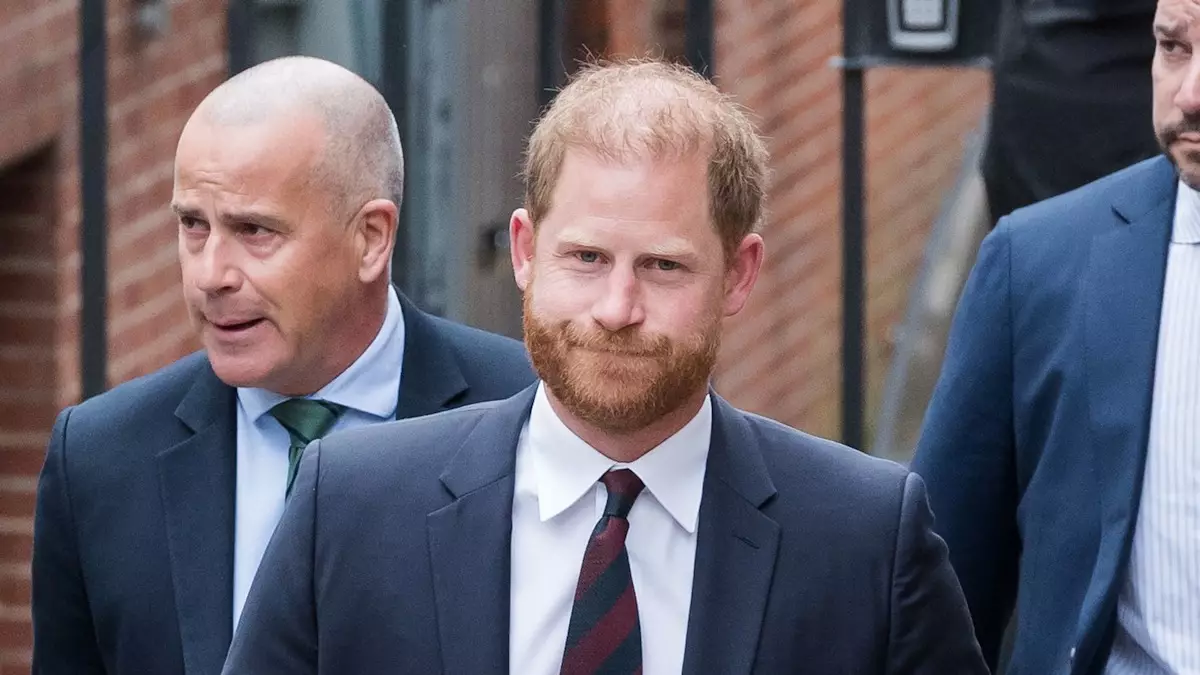In the theater of political discourse, humor often finds its place as a weapon or a shield, capable of disarming critics or rallying supporters. One such moment arrived during the highly publicized Bitcoin Conference in Las Vegas, where British politician Nigel Farage, known for his provocative statements, took aim at none other than Prince Harry. The occasion not only highlighted Farage’s affinity for leveraging humor in political dialogue but also reignited discussions surrounding the Duke of Sussex’s status in both American and British society.
As the leader of Reform UK, Farage kicked off his address with a moment that set the audience’s laughter in motion. Announcing his party’s decision to accept cryptocurrency donations, he championed this progressive move as an example of the United Kingdom’s potential for innovation. Yet, in true Farage fashion, he couldn’t resist the opportunity to poke fun at Prince Harry, humorously suggesting that the UK had sent him back to the US as a counterbalance to the cultural phenomena America sends across the Atlantic. “But you also send us bad things, because you sent us woke,” he quipped, drawing the lines of cultural exchange in a tongue-in-cheek manner that both entertained and unsettled.
The Subtext of Critique and Approval
Farage’s jest was layered with meanings that extend beyond mere amusement. Criticism of ‘wokeness’ has become a hallmark of conservative rhetoric, often rallying individuals who feel alienated by progressive ideals. By framing Harry as a form of misguided trade-off, Farage was not solely mocking the royal but also engaging in a broader commentary about the cultural exchanges between the UK and the US. Here lies an interesting tension: While the crown has traditionally represented stability and continuity in British identity, Harry—who stepped away from royal duties to pursue a life in the California sunshine—has challenged these conventions, symbolizing change, growth, and perhaps disillusionment.
In recent years, Harry and his wife Meghan Markle have taken their fair share of heat from public figures and tabloids alike—yet they remain potent symbols of contemporary discourse on identity, race, and mental health. Their media ventures, charity work, and outspoken nature have sparked debates about the role of the monarchy in modern society, thereby rendering the couple both necessary and polarizing.
Harry’s American Adventure: A Modern Fairytale Gone Awry?
Despite the jovial atmosphere surrounding Farage’s remarks, they remind us of deeper complexities regarding Prince Harry’s life in America. The Duke of Sussex, who expressed gratitude for the liberties that his new life affords him, has been vocal about the joys of fatherhood and the different experiences he can offer his children outside the confines of royal protocol. Yet this newfound freedom has not come without a price; the contrast between his current lifestyle in the opulence of California and his origins in royal tradition paints a modern fairytale as both enchanting and estranged.
His palpable enjoyment of the American way of life presents an intriguing juxtaposition to the often-staid British royal expectations. Harry’s continued connection to his roots serves as a reminder of the ongoing dialogue about tradition versus modernity. The very barbs directed at him by Farage serve an essential purpose: they provoke questions about whether Harry’s existence, far from the royal limelight, is a radical departure or a much-needed evolution of what it means to be a member of the royal family in the 21st century.
Media Spectacle and Public Scrutiny
The meticulous dance of celebrity and politics continues to generate intrigue as public figures like Farage leverage their platforms to comment on the lives of others, particularly those as high-profile as Prince Harry. This incident at the Bitcoin Conference serves as a reminder that public figures are not immune to the comedic barbs of political commentary. Farage’s ability to entertain while simultaneously critiquing the socio-political climate reflects a keen understanding of his audience’s sentiments.
One cannot help but wonder if the attention heaped upon Harry is indeed a reflection of a broader ambivalence towards modern royalty or simply a fascination with the contradictions that define contemporary celebrity. Harry and Meghan, regardless of the disapproval they sometimes face, personify a compelling narrative that resonates with many—a tale of seeking one’s truth amidst an endless sea of expectations and public scrutiny. Farage’s jest may have sparked laughter, but it also opened the door to a much larger discussion about identity, tradition, and the role of future generations in upholding or dismantling age-old institutions.

